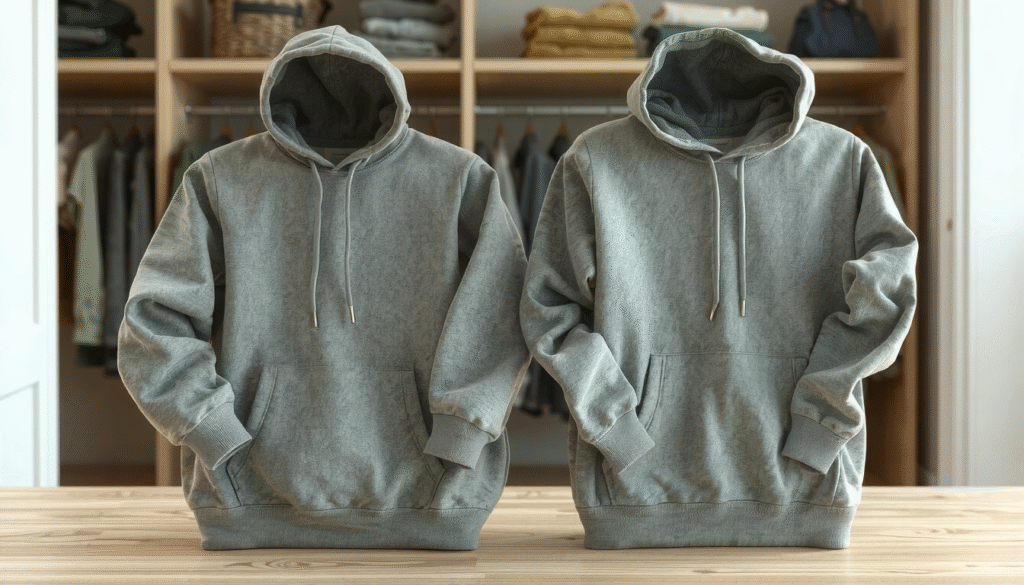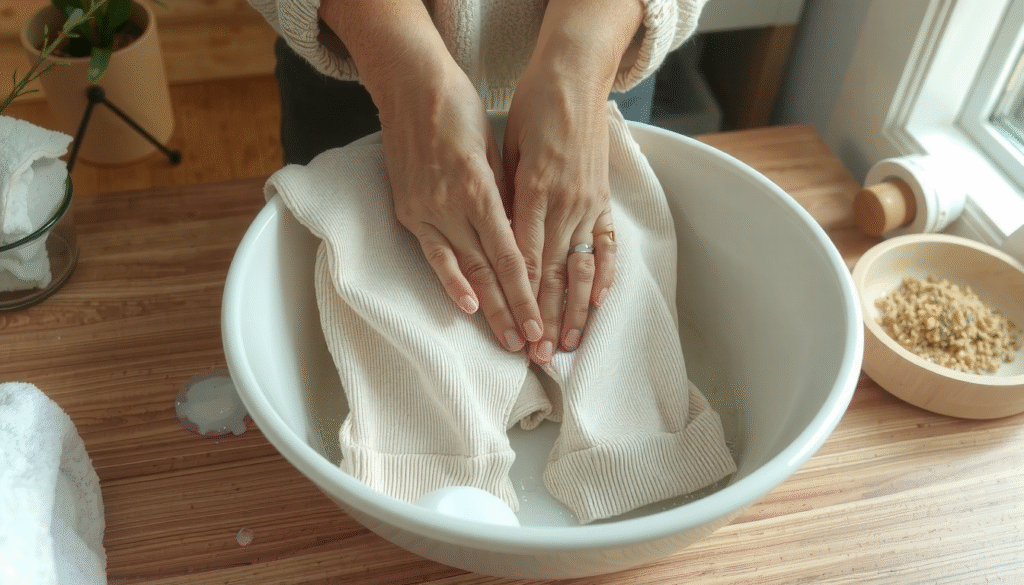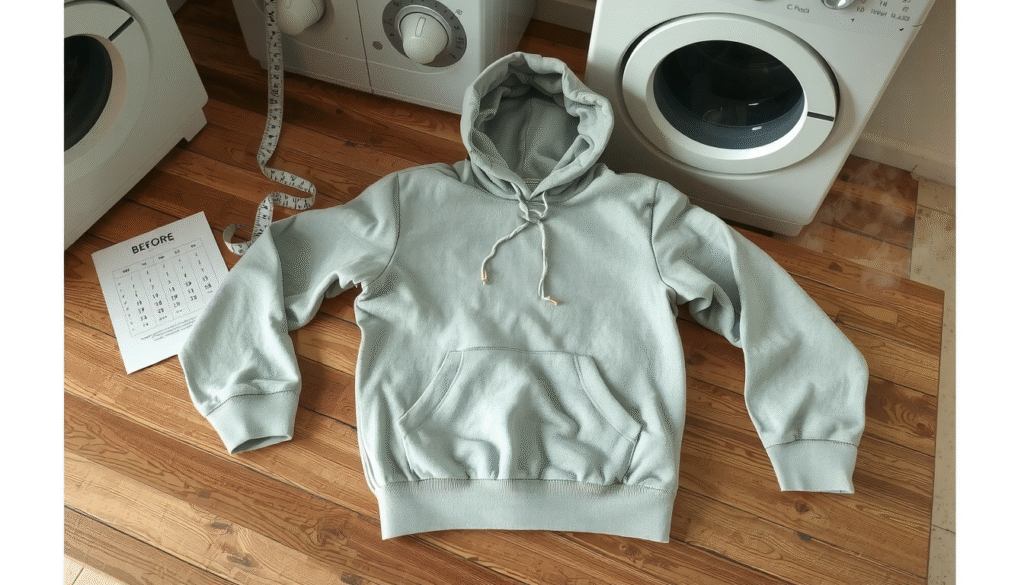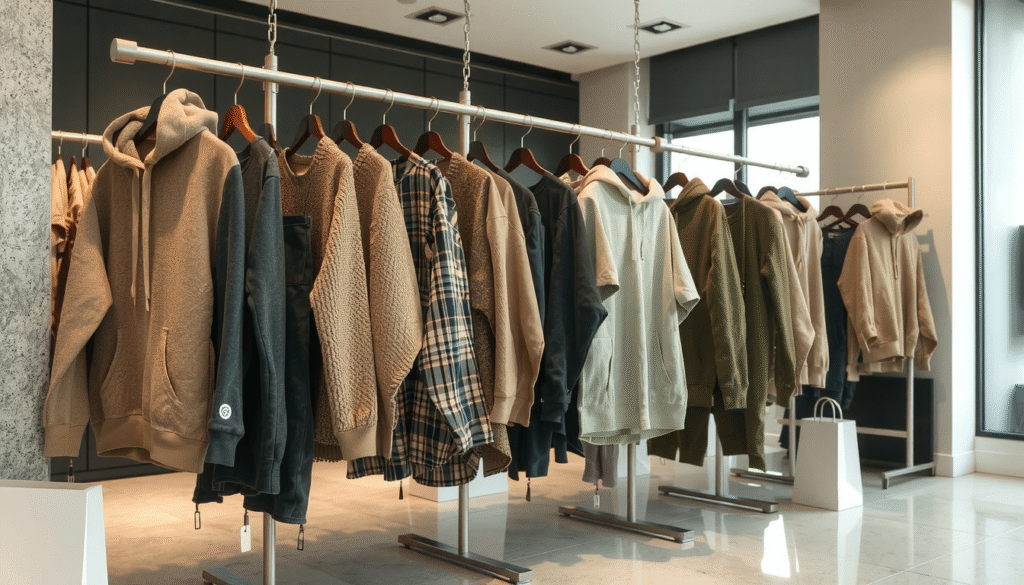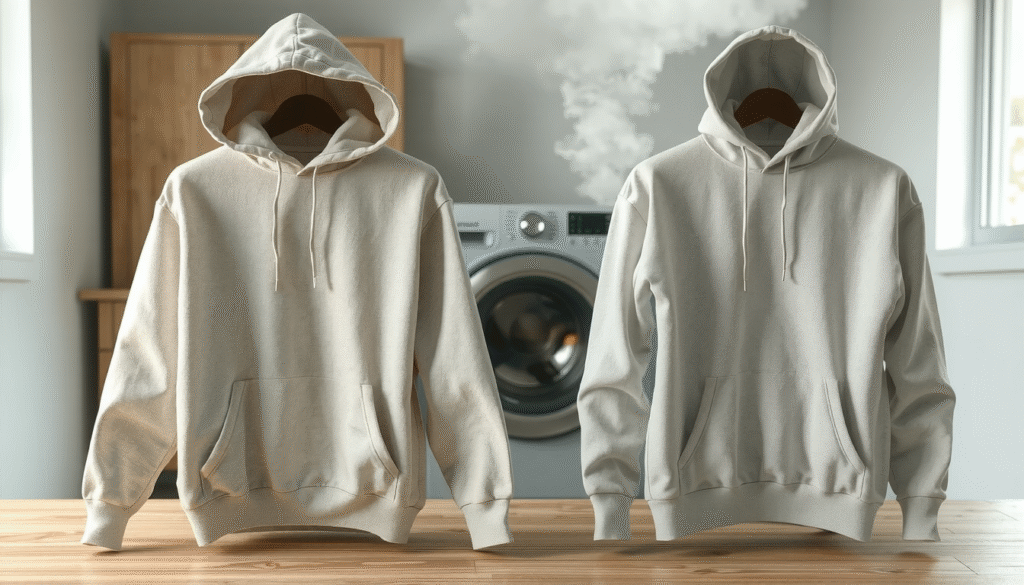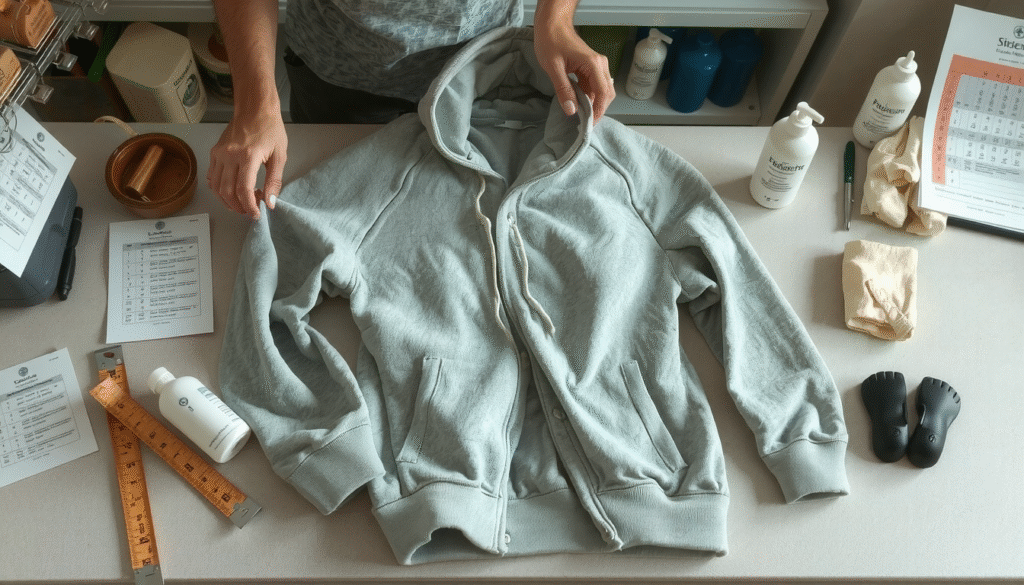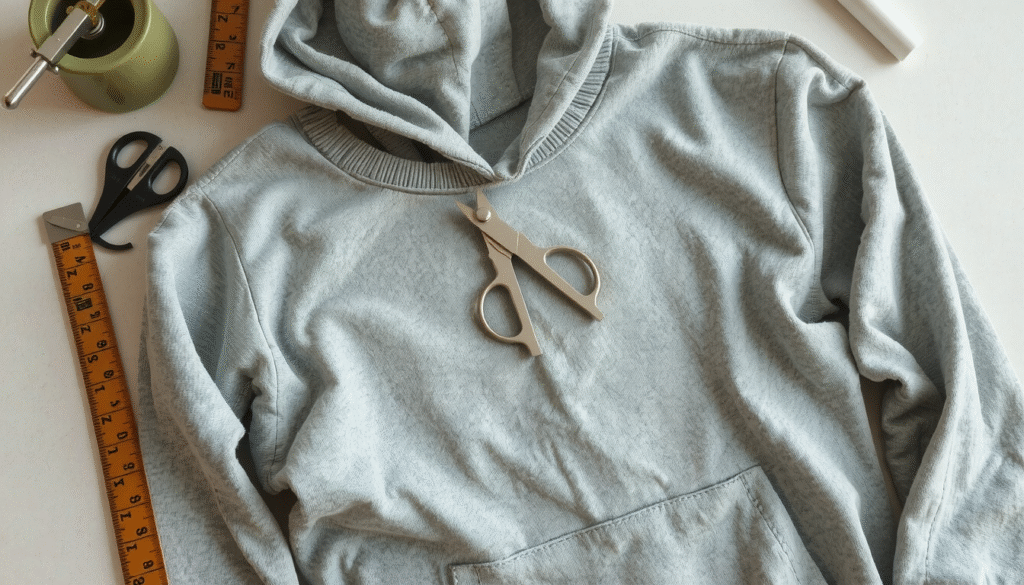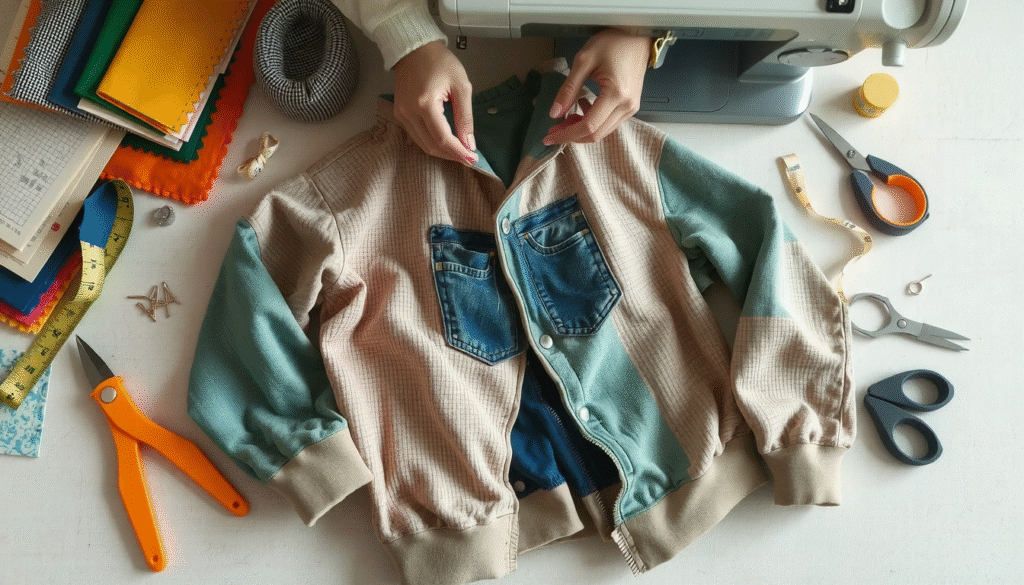Starting a clothing brand is like setting out on an exciting journey. Your blank apparel’s quality is vital for your brand’s favorable image. A fantastic design on a substandard shirt will bite the dust. However, a great design on a high-quality piece generates customer trust.

One of the most critical decisions you will face is finding the right supplier for your blanks. The main objective of this guide is to clearly state where you can obtain blanks for your clothing brand.
We will analyze two major approaches to sourcing apparel. The first is wholesale distributors while the second is direct manufacturers. We will also provide a list of top suppliers. Additionally, we will lay out a protocol to guide you in making the appropriate choice. Finally, we will give you a checklist that ensures you do not make mistakes that can cost you a fortune.
The Two Main Roads: Wholesale vs. Direct
The first critical decision for you is how to source your clothing. The two major business models are the wholesale and direct models. Both of them have their distinct advantages. Understanding them will help you align your sourcing plan with your brand’s goals and budget.
Who Wholesale Blank Distributors are
Wholesale distributors refer to large corporations. They acquire a blank tee in large quantities from many makers. Then they sell this clothing in smaller lots to businesses like yours.
You can think of them as a single point of purchase. A wide range of brands, styles, and colors located in one spot makes a good deal. Going wholesale is probably the best choice for new brands. The MOQs are minimal. The shipping tends to be straightforward and fast.
On the other hand, the primary drawback of this model is the limited decision-making regarding the product. The price for each product might be slightly more than through factory direct. Nevertheless, the convenience is usually worth it.
What is Direct-to-Manufacturer Sourcing?
It is only direct collaboration with a manufacturer that provides you with the highest level of control and customization. This way, you not only dictate the clothes you want to make but also how they are made.
The biggest advantage of working with a manufacturer is that you can create a completely different product. You can ask for specific fabrics, weight, color, and fit. You can choose to have your garments with specific types of tags. This is how high-end brands make their designer pieces. The price per item is also much lower when you order bigger quantities.
However, direct sourcing has its own challenges. High minimum order quantities are a major obstacle. These are often hundreds or even thousands by style. Lead time is also longer. Your clothes are made from the very beginning for you.

| Factor | Wholesale Distributor | Direct Manufacturer |
|---|---|---|
| Best For | New brands, testing ideas, wide variety | Established brands, high volume, custom products |
| Minimum Order Quantity (MOQ) | Low (often 1 to 12 pieces) | Very High (500+ pieces per style/color) |
| Customization Level | Low (limited to existing styles) | High (full control over fabric, fit, color, tags) |
| Cost-Per-Unit | Higher | Lower (at scale) |
| Speed/Lead Time | Fast (days to 1-2 weeks) | Slow (months) |
| Product Uniqueness | Low (using same blanks as others) | High (a 100% unique product) |
Top-Tier Wholesale Suppliers: Where to Get Blanks Now
Once you have decided to start with a wholesaler, the next question is which one to choose. Here are some of the best suppliers. They are grouped to help you find the perfect fit for your brand’s needs.
For All-Purpose & Budget-Friendly Blanks
This group is ideal for brands that are just starting up and are looking to test the market with an entry-level investment. They can also be used for promotional clothing. Or when you require a basic range of common styles and colors.
- ShirtSpace: This is a great starting point for almost any brand. ShirtSpace has a very large catalog and no minimum order requirement. They carry all the major brands such as Gildan, Hanes, and Bella+Canvas. This allows you to find credible and cost-effective opportunities for your clothing line. The website is easy to navigate. They ship quickly from warehouses across the country.
For Premium, Retail-Quality & Streetwear Blanks
If the main competitors of your brand are the quality, the feel, and the fit, you need to make sure to go with suppliers that focus on premium clothing. These blanks have a softer feel. They have a more modern fit and stronger construction that stand out to the discerning customer.
- Smartex: For brands that want to have a product that feels premium, Smartex is a priced quality. They believe in the philosophy of quality over quantity. As a Premium Blank Wholesale Apparel Supplier | Smartex, they offer heavier tees, luxurious fleece, and other good pieces for your streetwear or lifestyle brand. Their products are made to signify a clear difference from the ordinary blanks.
For Extensive Lists and Further Research
The plain clothes business is enormous. New suppliers are emerging all the time. At times, the best approach is to flip through a big directory. This is what helps you uncover a niche supplier that matches your vision perfectly.
- WTPBiz: For people who want to dig even deeper, the resources that gather lists of supplies can be of great help. You can find comprehensive lists of USA-based wholesale distributors that can introduce you to dozens of other options. This is a great way to find specialized suppliers for things like sustainable clothes or unique garment-dyed products.

Beyond a List: A Framework for Choosing
Choosing a supplier to work with is not only about clicking on the first link that you see. To get the best partner, you should have a clear plan. Implement this transparency policy while making a smart decision.
Step 1: Define Your Brand Identity
First and foremost, you need to be clear on what your own brand is. The answers will steer you towards locating where to get blanks for your clothing brand.
- What price range are you in? Are you a top-tier luxury brand, mid-market, or budget line? The cost of your blank will directly affect your final retail price.
- Who do you target as customers? Are you selling to skaters, boutique shoppers, or corporate clients? Each group has different expectations for quality and fit.
- Is your brand based on certain core principles? Is the brand aligned to sustainability, American manufacture, or fast fashion trends? Go for a supplier who’s products reflect your mission.
Step 2: Define Your Product Needs
Next, you must get particular about the apparel you want to make. It’s all about the physical attributes of your clothing.
- What textile quality do you have in mind? Would you like a heavyweight 100% cotton streetwear feel? A light tri-blend for a vintage look? Or organic cotton to hold on to your eco-friendly values?
- What fit do you need? Are you looking for an oversized, boxy fit? A slim, athletic cut? Or a standard, classic t-shirt fit?
- Do you want a wide range of colors or just a few core options? There are suppliers who specialize in unique colors achieved through garment dyeing. Others carry large standard catalogs of colors.
Step 3: Define Your Business Needs
Finally, you must be genuine and realistic about your operational and financial conditions.
- What is your initial budget and intended cost-per-item? This will assist you in filtering suppliers and products that you can afford to buy.
- What order quantity(MOQ) can you handle without wasting resources? Don’t over-order. It is better to sell out and reorder than be stuck with unsold inventory.
- How far is it your priority to have speedy shipping and low cost? If you need to restock soon, it is an advantage to find a supplier who has nearby warehouses.
Level Up: When to Work With a Manufacturer

As your brand expands, you may find that wholesale distributors aren’t sufficient anymore. You may want a unique color. A specific fabric weight. Or a custom fit that you cannot find off-the-shelf. This is the time to consider working with a clothing manufacturer in a direct way.
Indicators You are Ready for a Manufacturer
The moment you need to step up is when:
- You need a specific fit, fabric, or color that wholesalers don’t provide.
- Your order quantities are consistently high enough to meet the factory’s minimum (typically 500+ units per style).
- You desire to create a product that is 100% unique. From the fabric to the branded neck label.
- You are looking to decrease the cost-per-unit to increase your profit margins at a larger production scale.
Your Journey Towards Custom Blanks
Creating your own custom piece involves several core steps. For instance, you have to make a technical pack (a blueprint for your clothing). Sample approval. And handling a whole production run. It’s more difficult than just ordering from a website.
For brands that are determined to take control of their product development entirely, teaming up with an experienced full-service partner is the key. Companies such as Clothing Manufacturer Ltd. will walk with you along the process. From design and fabric sourcing to the end production. This guarantees that your vision is fulfilled.
Final Vetting: Your 4-Step Checklist
Before you are to go for a large order with any supplier, make sure you have done your research well. We have seen brands losing money because they skipped these steps. This checklist will help you identify and avoid common issues.
-
Always Order Samples
This is the biggest step. You can’t judge quality from a screen. Order a sample of each style you are contemplating. Check the stitching, the feel of the fabric, the color in person, and you can do a wash test. Most importantly, we always advise to perform a wash test. Wash and dry the sample and check if it shrinks, twists, or fades. -
Check Their Reputation
Look into the suppliers’ testimonials and reviews on other platforms, e.g., Reddit (the r/streetwearstartup community is a great resource), YouTube, and social media. Discover opinions of other brand owners on quality and service. -
Clarify All Costs
A major mistake to avoid is only checking the per-item price. You need to ascertain what the total cost is. Include shipping fees which could be substantial on bulk orders. Ask if they have discount tiers for larger amounts as well. Understand their return policy and any fees that might apply. -
Test Their Customer Support
Good support is a sign of a good partner. Before ordering, send their support team an email with a specific, technical question. For instance, you might ask, “What is the GSM or fabric weight of your heavyweight t-shirt style X?” Their response time and the quality of their answer will tell you a lot about their expertise and how they treat their customers.
Frequently Asked Questions (FAQ)
Do I need a business license to buy wholesale blanks?
As a rule yes. The best not to mention reputable wholesale distributors will require a business license or resale certificate. This will justify your legitimate business operation while also exempting you from sales tax on the items you buy. You will collect the tax from your customers.
What is the difference between “premium” and “standard” blanks?
The difference comes down to fabric, construction, and fit. Premium blanks often use softer, stronger ring-spun cotton. Standard blanks use basic cotton. Premium pieces are usually side-seamed for a more tailored fit. Standard shirts are often tubular (made from a single tube of fabric). This results in a boxier fit.
Can I buy single samples before a bulk order?
Yes. Most wholesale distributors allow you to buy single pieces as samples. The price per item will be higher than the bulk price. But this cost is a necessary investment. We always stress that you should never place a bulk order without good sampling.
How do I find suppliers for sustainable blanks?
To search for eco-friendly options, seek suppliers that deal with brands like Econscious, Allmade, or Royal Apparel. Use large distributor sites’ “search” filters for terms such as “organic cotton,” “recycled polyester,” or “sustainable.” This is the best way to discover blanks that tie in with your environmental brand ethos.
What are the best types of blanks for a streetwear brand?
To achieve that true streetwear look, we recommend heavyweight 100% cotton t-shirts. Common weights are between 6.5 and 7.5 ounces.



